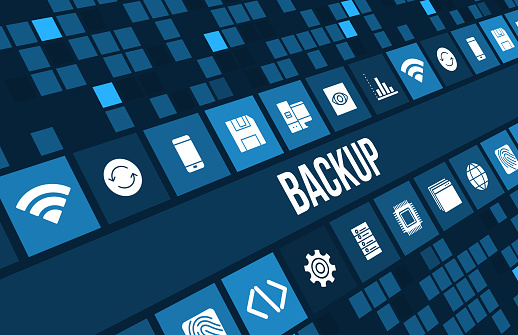By Jeff Blackey
Moving Forward by Backing Up
From personal business files on PCs to sensitive data on servers, access to information allows us to make day-to-day business decisions. In case of any disasters, whether they be natural or man-made, businesses need to make sure all pertinent data is backed up. Cloud-based data backup and recovery tools are increasing in popularity, with files replicated and stored off site and easily available if the primary data is lost, corrupted or inaccessible. No matter the location, these solutions can create a backup copy in the cloud of the data in all your business’s servers and computers and allows you to quickly restore files on demand. When looking for a backup solution, be sure that your data being transmitted will be truly secure. Most cloud services leverage the internet for transport, which is risky—you don’t want to leave your business data in a readable format while it is in transit. The most important factors in setting up a backup solution are the time it takes to recover your data and reload it from the remote source. If data restoration is ever required, you will want to start recovering time-sensitive materials via the network immediately. To avoid unnecessary delays to your business operations, look for a solution in which your provider will prepare and ship a physical hard drive to you.
Off Site, Not Out of Touch
More and more businesses are choosing to move business IT infrastructure into the cloud. By outsourcing the equipment used to support operations, including storage, hardware, servers and networking components, in the case of an event and power dies or flooding shorts out the server, the device will be elsewhere. In today’s cloud computing model, the service provider owns the equipment and is responsible for housing, running and maintaining it while you focus on running your business. When moving your infrastructure to the cloud, consider reliability. Your service provider should be able to provide you with a service level agreement (SLA), a written guarantee that details its reliability. The SLA should guarantee 99.99 percent uptime. You will also want to make sure that the service provider is capable of supporting all your business applications, not just the most popular ones. Scalability is equally important so make sure you can turn up and turn down servers on demand. Ideally your provider will allow you to make changes using a web-based customer portal so you can get new resources up and running on a moment’s notice, regardless of location and without any capital investment or additional IT resources. The last thing you need to worry about during a recovery is how to fund your next server, upgrade an existing server on the fly or allocate more resources (RAM, CPUs, storage or bandwidth) to meet unanticipated demand.
Reassess Your Phones
Keeping phone calls flowing with customers and employees is a key factor in helping your business recover after a disruption. Select a cloud service provider that offers voice services using the internet for transport, taking calls from your phone system and transporting them over the internet to the carrier’s network. When such a system is installed as a backup, calls can flow to the alternate provider as necessary. It could be used during a disaster if your primary circuit fails or as auxiliary capacity. Many providers offer usage-based and bundled minute packages so you can customize the service to your exact needs. With most cloud-based phone systems, the phones are in your office, but the intelligence of the service is secure in the cloud so that no matter where you are, you can use the system to help your business survive any disaster. Most providers have basic features like hold and transfer. Select a provider with unique applications and features, like softphones and mobile twinning that are cost-effective ways to enable mobility and disaster avoidance across your organization. Advanced providers completely integrate the softphone, offering your employees professionals full office phone functionality and seamless communication, making and receiving calls through any internet-connected PC, from any location using the same extension and accessing the same features, such as call forwarding, extension-to-extension dialing and voicemail. Mobile twinning allows you to send calls to your cell and desk phone simultaneously for complete coverage, allowing inbound calls to be sent to your cell and desk phone at the same time so you don’t have to be in the office to take calls.
Jeff Blackey is the senior vice president of marketing at Broadview Networks. Follow them at @1800BROADVIEW.







